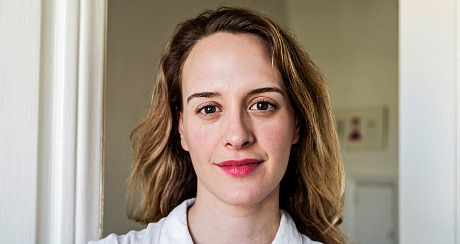In Katie Arnold-Ratliff‘s 7.18 N.Y. Times review, Emily Gould‘s “Friendship” is described as “a novel that could not exist without the internet — the very entity that has thrust its author into a certain kind of sickly, fluorescent limelight.” The “snark-and-burn ethos” of Gould’s writings for Gawker a few years ago “came back to very publicly haunt her after she left the company,” she reminds. The book is about an up-and-down New York relationship tale between Bev and Amy, the latter closely modelled upon Gould herself. It may be worth reading, but what has my attention are passages in Arnold-Ratliff’s review that remind me of my own vaguely warped existence. Just substitute “Jeff” for “Amy” or “Gould,” “his” for “her”, etc.
Excerpt #1: “‘Friendship’ does not come with a comments section in which people can say to Gould, as they often have, things like ‘go kill yourself.’ Besides which, if you have any interest in what it’s like to be a young woman in a world that exists half IRL (that’s In Real Life, FYI) and half online, where nothing is private and no one is kind…you might enjoy this book.”
Excerpt #2: “Book drafts, spec scripts and other false starts toward a creative, actualized life take up Amy’s mental and literal bandwidth, making her feel guilty — though usually not guilty enough to dig her out of those Wikipedia rabbit holes.”
Excerpt #3: “The internet is a siren, a tyrannical force that disgusts and compels in equal measure. It’s a source of endless entertainment (that impedes productivity), a facilitator of otherwise impossible conversations (many of which we don’t want to have) and a warehouse of unfathomable volumes of information (much of which we’d prefer not to know).”
Except #4 (this hits especially close to home): “In Gould’s more personal writings, she has described the gut-churning cognitive dissonance of spilling something highly intimate online, then eagerly awaiting the inevitable venom it inspired. Amy, too, writes of ‘putting in her two cents on Twitter…then checking back to see whether anyone had responded to her responses.'”
Except #5: “This is a woman made and flayed by the internet, writing about a woman also made and flayed by the internet who, though she longs to do something important with her time, spends tons of it glued to the entity that has both made and flayed her.”













